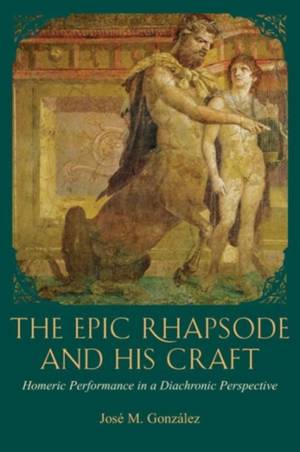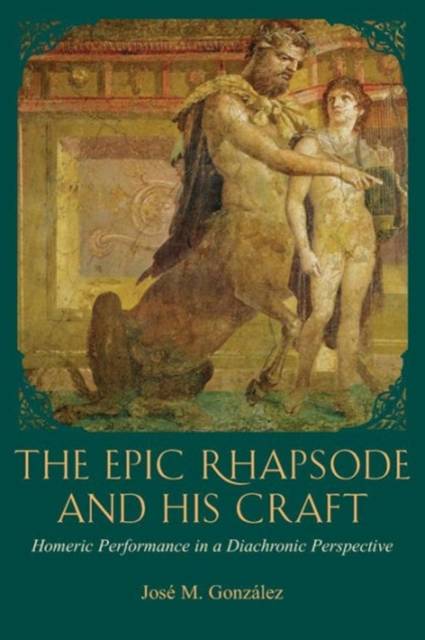
Bedankt voor het vertrouwen het afgelopen jaar! Om jou te bedanken bieden we GRATIS verzending (in België) aan op alles gedurende de hele maand januari.
- Afhalen na 1 uur in een winkel met voorraad
- In januari gratis thuislevering in België
- Ruim aanbod met 7 miljoen producten
Bedankt voor het vertrouwen het afgelopen jaar! Om jou te bedanken bieden we GRATIS verzending (in België) aan op alles gedurende de hele maand januari.
- Afhalen na 1 uur in een winkel met voorraad
- In januari gratis thuislevering in België
- Ruim aanbod met 7 miljoen producten
Zoeken
€ 46,95
+ 93 punten
Omschrijving
The Epic Rhapsode and His Craft studies Homeric performance from archaic to Roman imperial times. It argues that oracular utterance, dramatic acting, and rhetorical delivery powerfully elucidate the practice of epic rhapsodes. Attention to the ways in which these performance domains informed each other over time reveals a shifting dynamic of competition and emulation among rhapsodes, actors, and orators that shaped their texts and their crafts. A diachronic analysis of this web of influences illuminates fundamental aspects of Homeric poetry: its inspiration and composition, the notional fixity of its poetic tradition, and the performance-driven textual fixation and writing of the Homeric poems. It also shows that rhapsodic practice is best understood as an evolving combination of revelation, interpretation, recitation, and dramatic delivery.
Specificaties
Betrokkenen
- Auteur(s):
- Uitgeverij:
Inhoud
- Aantal bladzijden:
- 834
- Taal:
- Engels
- Reeks:
- Reeksnummer:
- nr. 47
Eigenschappen
- Productcode (EAN):
- 9780674055896
- Verschijningsdatum:
- 31/12/2014
- Uitvoering:
- Paperback
- Formaat:
- Trade paperback (VS)
- Afmetingen:
- 152 mm x 229 mm
- Gewicht:
- 1093 g

Alleen bij Standaard Boekhandel
+ 93 punten op je klantenkaart van Standaard Boekhandel
Beoordelingen
We publiceren alleen reviews die voldoen aan de voorwaarden voor reviews. Bekijk onze voorwaarden voor reviews.









